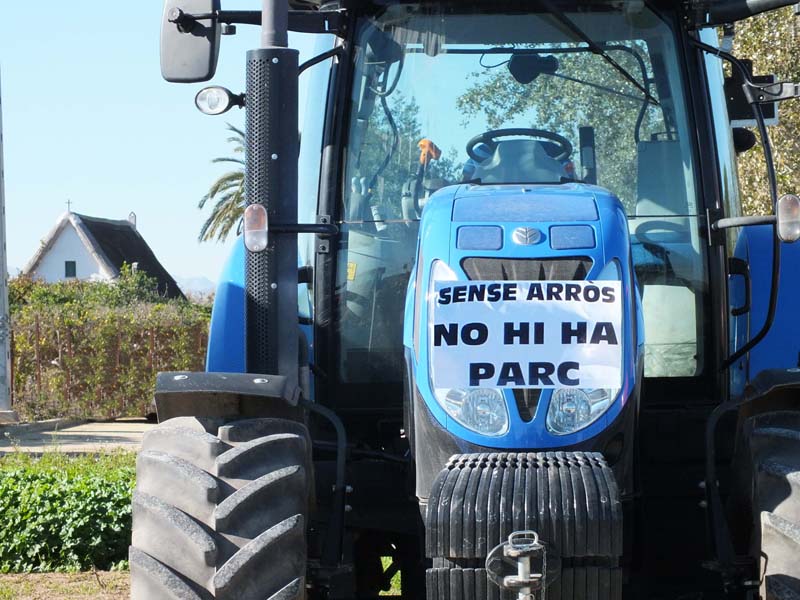
Winner of the 2017-2018 outstanding PhD award, Marina studied Sociology and Political Science at the University of Valencia, while working in the hotel industry and doing an internship at the Lligam Recerca cooperative where she learned the keys to doing social research.
In 2011, she was awarded the Catalan countries scholarship of the IEC and the following year the FPU scholarship of the Ministry of Education, to help train the University Teaching Staff. This allowed her to develop the thesis “Entre natros y mosatros: representacions socials, discursos agraris i discursos mediambientals al Delta de l’Ebre i l’Albufera de València” (‘Between we and ourselves: social representations, agricultural discourses and environmental discourses at the Delta de l’Ebre and l’Albufera of Valencia’), directed by José Manuel Rodríguez Victoriano, Luis Enrique Alonso Benito and Ignasi Lerma Montero. She made stays at the Autonomous University of Madrid and the University of Manchester.
At the end of the thesis she worked as a trainee in a market research company where the field work of surveys carried out by the European Commission, the CIS, the Bank of Spain and also in private companies such as Mahou, Burger King or Coca-Cola.
Her current research is funded by the Valencian Government and the European Social Foundation. It was developed between the University of Valencia and the University of Sheffield. In it she investigates environmental behaviour and different lifestyles in the context of daily practices in rural and urban habitats.
What difficulties have you encountered while undertaking the thesis?
The most difficult thing was to be able to interview or include the discussion groups of entrepreneurs who worked in the industrial estates around the Natural Parks studied.
What do you think your research contributes to the scientific community as a whole and to society? And to you?
Listening to the people in our towns has been really useful to understand that taking care of the environment is not a question linked to the attitudes reproduced by middle or high class people who live in the cities and have high levels of education, just like many social theories and common knowledge are determined to explain. The environmental behaviour derived from these theories is based on surveys that ask about social perception and isolated behaviours that try to mitigate the effects of consumption (such as recycling), but leave the lifestyle aside. These studies also face the aforementioned “environmental gap”, the inconsistencies between the declared practices and those actually produced.
In the qualitative study we observed that, in our towns, there were behaviours that were very oriented towards environmental protection: they produced part of their food, they bought locally, they had a lower energy consumption and a greater link with the environment, among other practices. Lifestyles inherited from previous generations and linked to the territory. However, these lifestyles have been relegated and marginalised by economic progress.
In addition, it has been observed that people in the villages tend not to consider themselves as people concerned about the environment, but they do act as if they were. It is not a sacred reverence for nature, but a material interest in the environment as a source of sustenance, not so much a concern for the rights of other species and future human generations, but for the towns of today.
Our job, as social researchers, is to recover part of those lifestyles that are anchored in our collective memory and identity, and that lead us to develop less predatory societies of natural resources.
What applicability can your work have?
It facilitates achieving the conservationist objective through a model of social organisation and lifestyles, from production to urbanisation and leisure, less aggressive and less exploitative of the useful functions of nature.
Based on your experience, do you think getting a Doctorate facilitates employability?
It does not regarding sociology. When I finished my PhD I had to look for work in the private sector. We are an uncomfortable science.
Would you recommend starting doctoral studies?
No, I would recommend doing committed social research, and that public administrations would make possible the material conditions for their development.
Have you actively participated in outreach activities and scientific communication? How important do you think these activities are?
Regarding this question, I consider that the current academic system is very far from the society it studies and there are not many open routes for the return, it has lost its purpose. Personally, I have not participated in many activities that involve returning the knowledge that people have given me. When I have done it, it has been very informal.
Images:
.jpg)












